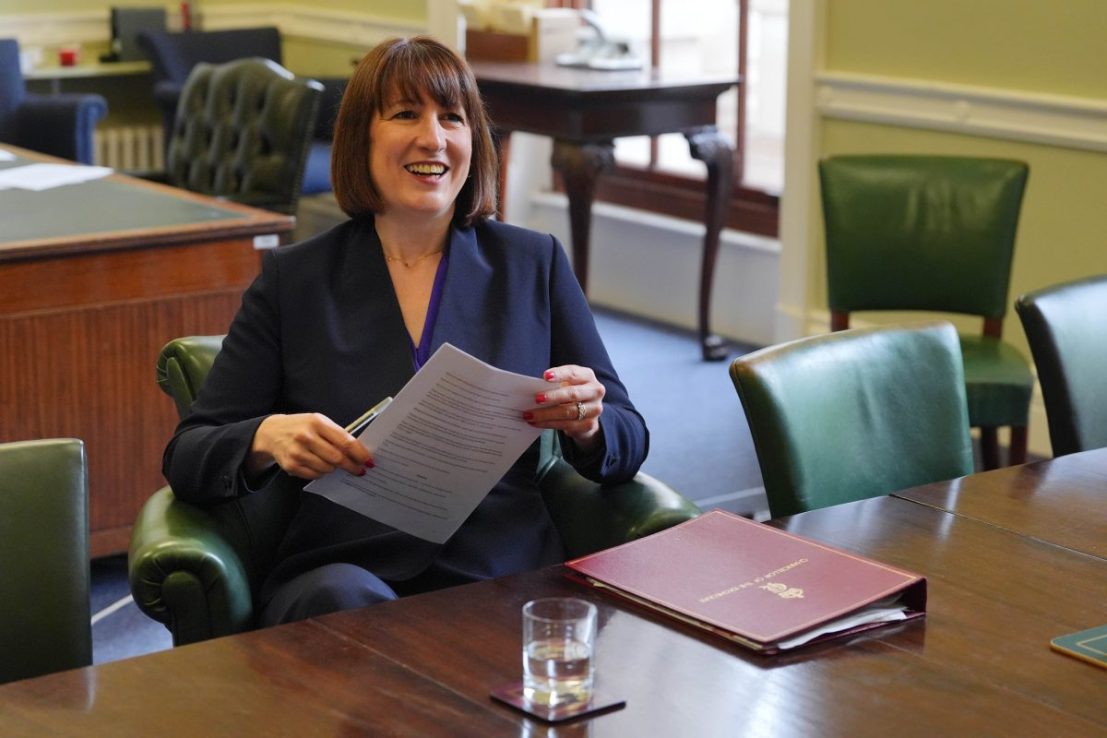Let’s be honest… our pensions are not for politicians to play with
The point of a pension is to provide the best possible retirement income for the individual, not to invest in Reeves’ favoured projects, writes Matthew Lesh.


The point of a pension is to provide the best possible retirement income for the individual, not to invest in Reeves’ favoured projects, writes Matthew Lesh ahead of the Chancellor’s first Mansion House Speech
Chancellor Rachel Reeves will deliver her first Mansion House Speech this evening, outlining the new government’s vision for financial and professional services.
Reeves’ address coincides with Donald Trump’s re-election, signalling a renewed chapter in the populist era. It will remain politically fashionable to suggest that Britain’s economy has become overly reliant on professional services and too centred around London. Calls to impose tariffs to “protect” manufacturing and heavy industries resonate as populist rallying cries. However, this narrative couldn’t be further from the truth.
The UK would be significantly poorer without its world-leading services sector. London is the envy of Europe, with its high-paying service jobs and substantial tax revenue, which is redistributed nationwide to support public services like the NHS. These services are also essential to fuel the broader economy, supplying the financial strength needed for investment and economic renewal across the country.
Reeves understands this point and, in the name of the government’s ‘growth mission’, will undoubtedly heap praise on financial and professional services. This is critical to the government’s electoral prospects too. If there is one crucial lesson from the Trump victory and Sunak’s loss, it is that a government will be booted if people do not feel better off.
The devil will, as always, be in the detail. The Budget’s hefty tax rises, abolition of the non-dom regime and costly labour market regulations are hardly likely to make Britain a more investable place. Nor are kind words about a sector and talk of ‘predictable’ regulation without undoing the mounting red tape like the consumer duty, which costs billions and stifles the industry’s growth.
The speech is expected to focus on reforms to unlock pension fund investments for infrastructure and domestic business. This might sound familiar because it was a key theme of Jeremy Hunt’s ‘Mansion House Reforms‘ from just last year.
What will be different remains to be determined. So far, we can expect Reeves to draw inspiration from the Canadian model by consolidating local authority pension schemes, which collectively hold approximately £400bn in assets, into a single fund. This may not be an entirely illogical administrative move.
But beyond that, government efforts to manipulate pension funds into putting more into domestic assets is a disastrous idea.
The point of a pension is to provide the best possible retirement income for the individual. It is not to invest in Reeves’ favoured projects. Such an approach risks lower returns and poorer Brits. Our pensions are not a politician’s plaything despite how they often act and speak.
The underlying issue is that Britian is not a good enough place to invest. If it were, domestic and international investors would flock in much higher numbers. The trouble is almost inevitably poor regulation. Why invest in infrastructure when it takes tens of millions of pounds and years of delay actually to get anything approved?
Just take the water sector. Ofwat’s draft decision to cut £16bn from proposed investments to keep bills low risks reducing potential returns and discouraging major global investors from the UK. Singapore sovereign wealth fund GIC has already said that it will not invest in British utilities because of the mess in the water sector.
Reeves talks a lot about ‘fixing the foundations’ – that means making Britain investable, not using our pensions as a cushion for state failure.
Matthew Lesh is the country manager at Freshwater Strategy and public policy fellow at the Institute of Economic Affairs


